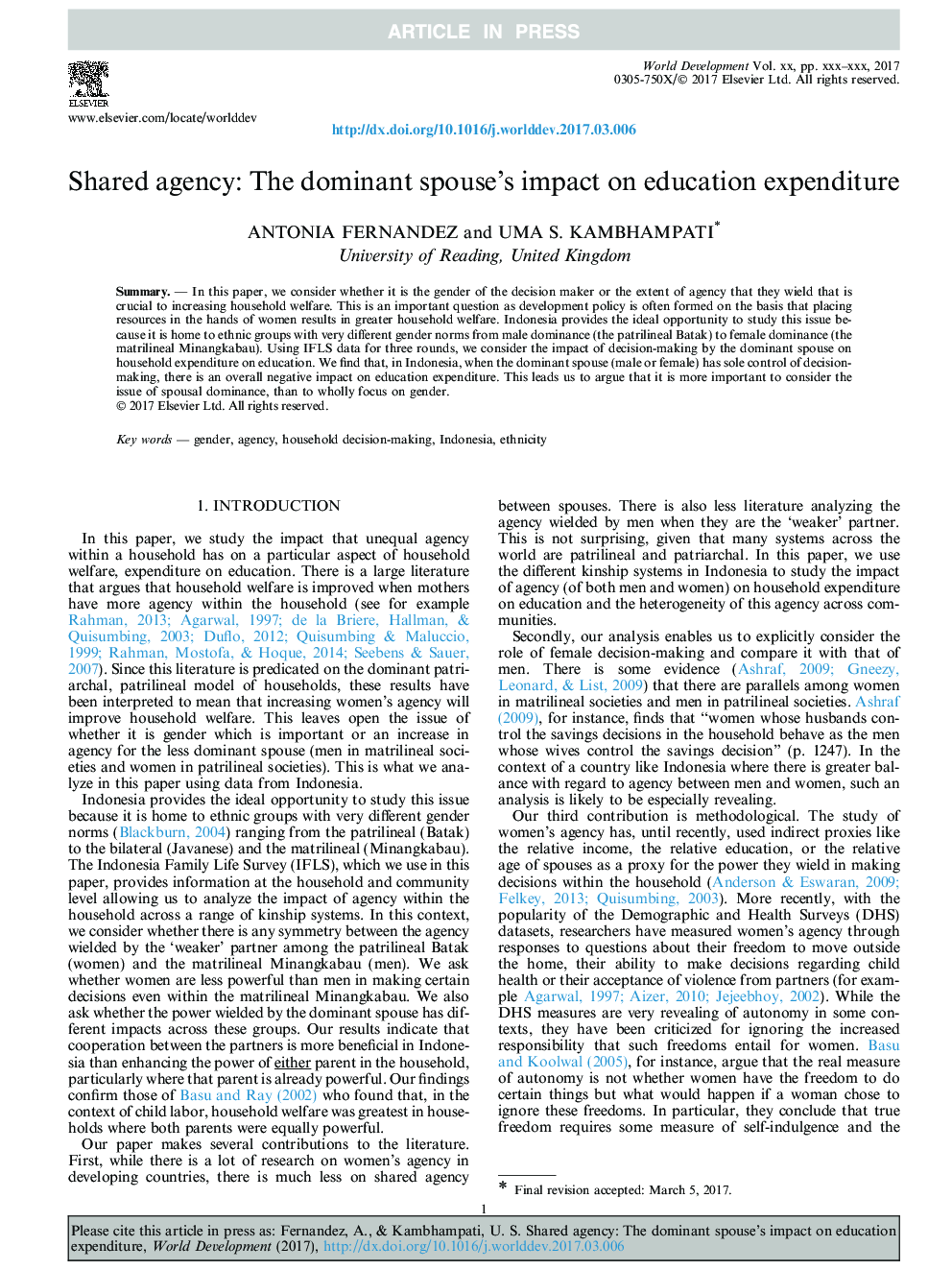| Article ID | Journal | Published Year | Pages | File Type |
|---|---|---|---|---|
| 5105056 | World Development | 2017 | 16 Pages |
Abstract
In this paper, we consider whether it is the gender of the decision maker or the extent of agency that they wield that is crucial to increasing household welfare. This is an important question as development policy is often formed on the basis that placing resources in the hands of women results in greater household welfare. Indonesia provides the ideal opportunity to study this issue because it is home to ethnic groups with very different gender norms from male dominance (the patrilineal Batak) to female dominance (the matrilineal Minangkabau). Using IFLS data for three rounds, we consider the impact of decision-making by the dominant spouse on household expenditure on education. We find that, in Indonesia, when the dominant spouse (male or female) has sole control of decision-making, there is an overall negative impact on education expenditure. This leads us to argue that it is more important to consider the issue of spousal dominance, than to wholly focus on gender.
Related Topics
Social Sciences and Humanities
Economics, Econometrics and Finance
Economics and Econometrics
Authors
Antonia Fernandez, Uma S. Kambhampati,
